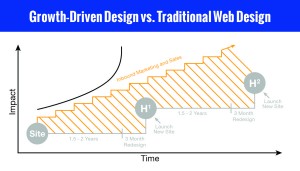
The benefits of aging
There are more perks to turning 50 than just cheap movie tickets, says Lindsay Gellman at The Wall Street Journal, but surveys indicate that fewer than half of eligible seniors are taking advantage of them. Unlike their youthful counterparts, investors who have hit the half-century mark can bolster their retirement savings by making pretax “catch-up contributions” of up to $23,000 annually to their 401(k) accounts, $5,500 more than investors under 50 are allowed. Seniors can also put up to $6,500 toward an IRA, $1,000 more per year than permitted for younger investors. And while 59 and a half is typically the age at which retirement distributions can be taken without incurring a 10 percent early withdrawal penalty, workers who retire, quit, or are laid off can tap an employer-based savings plan penalty-free beginning the year they turn 55.
Keeping wealth in the family
While you can’t take it with you, the wealth you leave behind may not last as long as you’d like, says Beth Pinsker at Reuters. Studies have shown that roughly 90 percent of families with at least $5 million in investable assets exhaust their estates within three generations. The main reason, according to new research from Merrill Lynch, is that many rich families have an “unreasonable expectation of how much they can withdraw and still have the money last.” It’s partly a math problem, as estate planners often don’t account for just how big families can get by the third or fourth generation, and thus fail to adjust distributions or lower expectations. Another major problem: Later generations rest on their laurels. “To make wealth last forever,” said study co-author Michael Liersch, “you’re probably going to need future generations to replenish that wealth.”
Cash floods the housing market
When it comes to home buying, cash is still king, says Doug Carroll at USA Today. All-cash home purchases accounted for one third of total sales in the first quarter this year, up from 29 percent in 2012. While speculators have been paying cash to snap up homes to rent or flip in recent years, the current trend is being driven by retirees and Baby Boomers who have been put off by the challenges of today’s mortgage market. Thanks to “decades of accumulated equity,” older Americans have the funds to buy a home outright or to buy rental property as an additional income stream during retirement.
Read more on The Week Magazine
(416)






